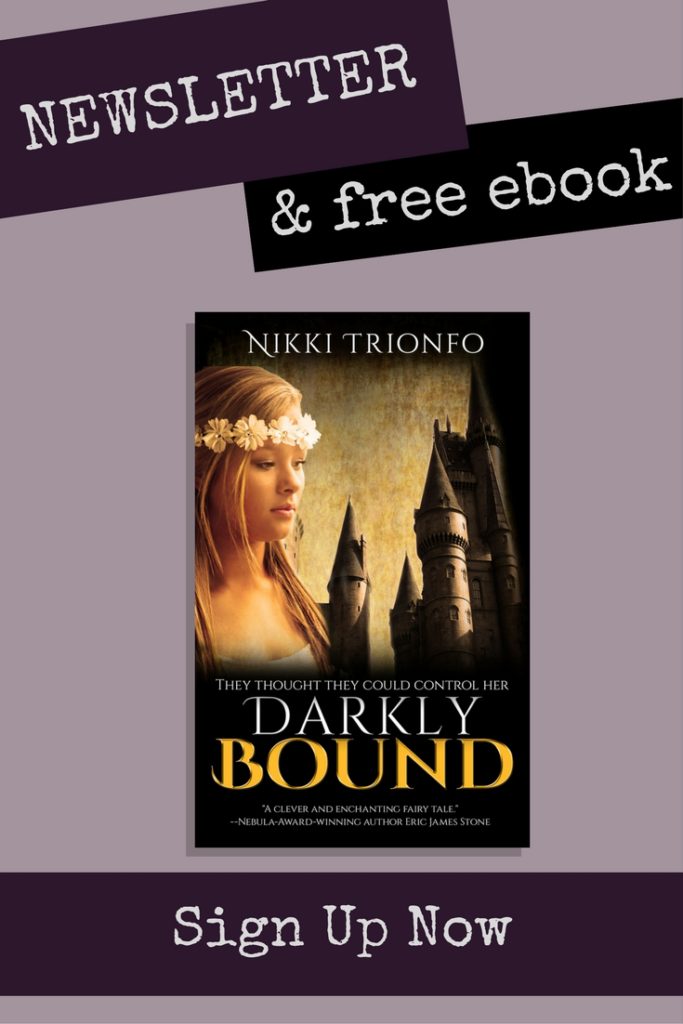Diversity, Part II: Welcome back!
Last week I blogged here about a hilarious lesbian couple and a male attorney who taught me that diversity-loving people accept others, no matter how white or Mormon they are. Er, no matter how white or Mormon I am. Now to continue.
Before we get going, I’ve got to put a plug in for a post by my agent, the fantastic Josh Getzler, covering diversity from the agent’s point of view. (He posted the day after I got to meet him–more news on that coming!!)
Photo Credit: smarnad at freedigitalphtos.net
Okay, I’m not going to address race too much. Suffice it to say that I’m white, I’m insecure as I write about offending another race (what’s the lastest PC term for brown skin again?), and insecure talking about my insecurity, as if POC don’t have way worse crap to deal with. Like having a paper cut in a cancer ward. Mild survival guilt, if you will. I’m not complaining. And heaven help me, don’t start some kind of rally cry around me. “Oh, please help the paper-cut people.” No. My point is this: I haven’t been “hurt bad” by race-relations, but I’m a person. All people understand the pain of being ostracized or tormented by a dominant group, regardless of the degree to which they have experienced it.
One of the primary ways I found myself ostracized, especially in high school, was based on my religion.
I’m Mormon. Mormons are raised to be good at reaching out about their beliefs (some say too good). Despite some insecurities I had about being Mormon, reaching out became a trait I embraced.
I learned Spanish as did all four of my siblings and knocked on doors in Puerto Rico to tell people about a God I was still trying to figure out at the age of nineteen (FYI—I wasn’t on a full-time mission, just “splits,” the word for a lay volunteer helping out a missionary). Here in the states, I’ve been in the homes of alcoholics, women in danger of losing their kids to child protective services, and men who say they have nowhere else to turn. I’ve taught English, painted over graffiti, scrubbed flooded basements, read to foster care kids in two languages, volunteered rides to Mexican immigrants, and occasionally confuse poor Iranian grocery store workers by asking in Spanish if they know where the tomato paste is.
Basically, I’m pretty well-versed in some other cultures, particularly the Hispanic-American one, partly due to my faith.
There’s flip side to my experiences, though. I currently live in suburban Utah and my average friend is a white, Mormon, thirty-something mom who lives in my neighborhood and has a degree she doesn’t use. In other words, she’s just like me.
It’s not like we’re exclusive. If you meet us at the park, we’ll surround you with conversation. “Oh, I always cut up grapes for Graham.” “Yeah, me, too! Braydon has a serious gag reflex.” We’ll notice if you’re sick and volunteer to make dinner for you. (Or at least run milk to you if you’re out—hello, emergency.) Got kids? We wipe noses. We might be slightly too excited to invite you to our church barbeque. (Unless you want to come. Do you want to come?)
There’s nothing wrong with having the friends that I do. That’s who I live by. That’s who I can easily coordinate my schedule with. That’s who my kids want to have over—people with kids. And we’re nice.
But still, I’d slowly learned to think of myself as having failed at diversity. I had the vague idea that my whole town had failed—that every town with a predominant “type” of person had failed. And I haven’t even talked yet about how my church holds the belief that homosexuality as a practice is wrong.
That’s not popular.
In terms of exposure to and acceptance of gays, I’ve had an easy time. I had three high school friends and a former student announce somewhere along the way that they were gay. I share various holidays with my sister-in-law’s gay brother, etc. Accepting gays has never been the trouble.
Here’s the trouble. Remember how all I do is hang with other moms and wipe snot? The hardest part of diversity is that, at the end of the day, I will advocate certain values to my kids, while shunning others. I mean, I’m not going tell my kids, “Fine, if you want to be a neo-Nazi and wipe out half the world’s population, go for it.” Heck no. Sure, I’ll love my kids no matter what, but you better believe I’m going to explain my value system.
And frankly, though I may tear myself up about it, I’m going to either take my kids every week to a church that preaches that the practice of homosexuality is wrong, or I’m going to stop taking them each week and tell them that practicing homosexuality is okey-dokey. My siblings and I have conflicted conversations about that decision all the time. We often change our minds.
Many people struggle in a similar manner to define their value system. Tough topics exist. Mercy-killings of the elderly, laws that require women to wear face-covering shawls, oh-so-convenient cars that pollute the environment.
Embracing diversity is accepting that people will choose different value-systems, on the most controversial of topics.
And once you’ve chosen a set of moral codes, you’ve condemned something (not someone—that’s different). Even if you insist on saying everything is both wrong and right, someday you’ll stop your cousin from driving drunk or you’ll cheer at the news the U.S. has killed an al Qaida member overseas.
Voila—your values, revealed by your actions.
Someday you’ll be sitting next to someone who feels differently than you on one of your core-values, and how well you treat that person is how well you embrace diversity.
It’s hard to find out your new funny friend voted for you not to be able to marry. It’s hard to learn the cool lesbian hosts a blog dedicated to proving your childhood religion is backward and prejudice. (FYI: both scenarios are fabrications in this case.) It’s hard to continue to have fun together. THAT is the hard part. I joked in my last post that embracing diversity meant being funny, but that’s one great way to get past the hurt when it comes.
So, yes. Finding out someone is different than you can be hard. It can be cool. Simply being different isn’t the point of all the diversity-talk, either. A melting-pot like New York City isn’t “better” than a small town in Utah or Thailand or Norway. They’re just different. Sometimes being different can cause some emotional conflict.
I don’t know how my value-judgments regarding Mormonism and homosexuality will play out. No matter what, someone out there will choose differently than me. My decision may affect how some people treat me. But it will not affect how I strive to treat some people.
Because embracing diversity means I will strive to treat all people well.
And to the people who treat me well in return—
Let’s hang out, yeah? I know this great neighborhood park . . . .
* Reader Now Clicks Directly to Josh’s post! *




4 Responses to Mormons and Gays and Diversity, Oh My